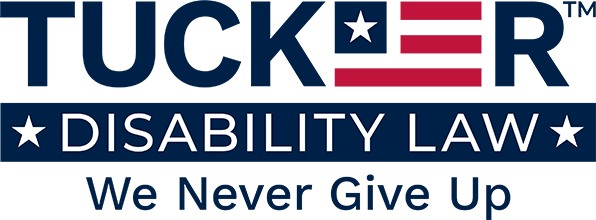Filing for disability due to a mental health condition can be an exhausting and emotional process, especially when your mental health disability claim is denied. Unfortunately, many people in this situation feel discouraged and uncertain about what to do next. However, a denial isn’t the end of the road—it’s an opportunity to fight for the benefits you deserve. Here’s why having Tucker Disability Law on your side can make all the difference.
Understanding the Challenges of Mental Health Disability Claims
Mental health disability claims are often more challenging to win than those based on physical conditions. The reasons for this are numerous:
- Subjective Nature of Mental Health: Unlike physical disabilities that can be measured through diagnostic tests and imaging, mental health conditions are often assessed through patient-reported symptoms and observations, which can be more difficult to quantify.
- Stigma and Misunderstanding: There is still a significant stigma surrounding mental health issues. Some insurance companies may downplay the severity of these conditions or question the legitimacy of the claim, leading to unjust denials.
- Complex Documentation Requirements: Proving that a mental health condition prevents you from working often requires extensive documentation from multiple healthcare providers, including psychiatrists, psychologists, and therapists. Gathering and presenting this evidence effectively is crucial to a successful mental health disability claim.
Common Reasons for Mental Health Disability Claim Denials
There are several common reasons why mental health disability claims are denied, such as:
- Insufficient Medical Evidence: If the documentation doesn’t convincingly show how your condition impairs your ability to work, your claim may be denied. Insurance companies often require detailed evidence of your limitations, treatment history, and prognosis.
- Failure to Meet the Policy’s Definition of Disability: Each disability insurance policy has its own definition of what constitutes a disability. If your mental health disability claim doesn’t align with these terms, the insurer may deny your claim.
- Missed Deadlines or Incomplete Forms: The disability claims process involves strict deadlines and meticulous paperwork. Any errors or omissions can result in a denial.
How Tucker Disability Law Fights for Your Disability Claim
When your mental health disability claim is denied, it’s essential to have a legal team that understands the complexities of these cases. Here’s how John Tucker and his team can help:
- Expertise in Mental Health Disability Claims: Tucker Disability Law has extensive experience handling mental health disability claims. They know what it takes to build a compelling case that addresses the unique challenges of these claims.
- Thorough Documentation: The team will work closely with you and your healthcare providers to gather all necessary documentation, ensuring that every aspect of your condition and its impact on your work capacity is clearly presented.
- Strategic Appeals: If your mental health disability claim has been denied, Tucker Disability Law will carefully analyze the denial reasons and develop a strategy to address them. They will file a strong appeal that challenges the insurer’s decision and advocates for your rights.
- Personalized Support: Dealing with a mental health disability claim can be overwhelming. Tucker Disability Law provides personalized support throughout the process, ensuring you feel informed, empowered, and supported every step of the way.
Importance of Documentation in Mental Health Disability Claims
Documenting your condition and how it prevents you from working is essential in the disability claims process. Detailed records of your symptoms, treatments, and their effects on your daily life help build a strong mental health disability claim. Regularly updating your medical documentation with the help of your healthcare providers ensures that all relevant information is available for your claim. This documentation is vital for demonstrating the ongoing impact of your condition and justifying your need for disability benefits.
Keeping a daily journal helps you track how your symptoms interfere with everyday tasks and work assignments. It lets you provide specific written examples to your doctor, showing why you can no longer work.
To assist you, we’re offering a FREE Capability Journal that you can download immediately. This journal, complete with instructions, was created by our experienced disability attorneys. It’s a proven tool to help you gather the evidence needed to win your disability case. Use this journal daily and bring it to your doctor’s visits. This way, your providers can see for themselves how your symptoms limit your ability to work.
Tucker Disability Law Can Help
If you’ve been denied long-term disability benefits, we can help. We have over 30+ years fighting the insurance companies and have a 98% win rate.
Use the blue contact section NOW to call us, live chat with us, or message us. You can also message us using our confidential contact form.
At Tucker Disability Law we don’t settle for less. Neither should you.







